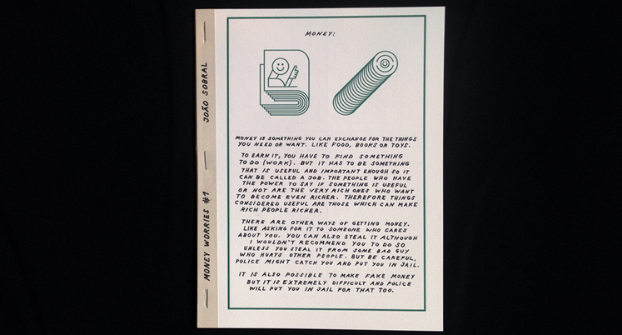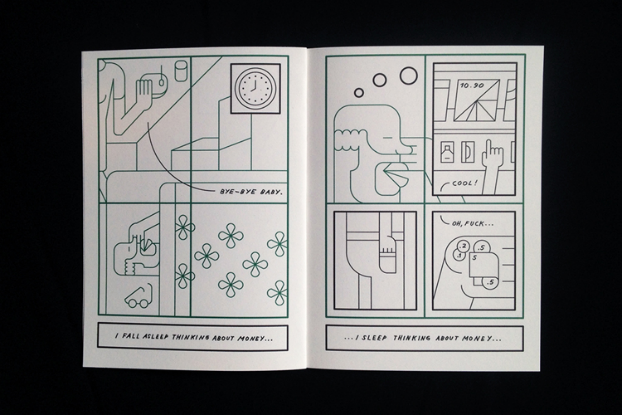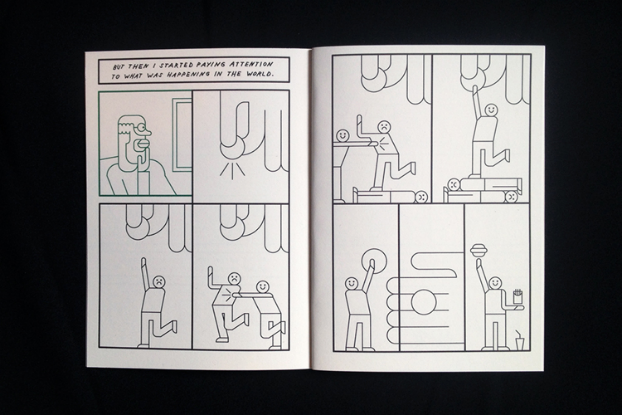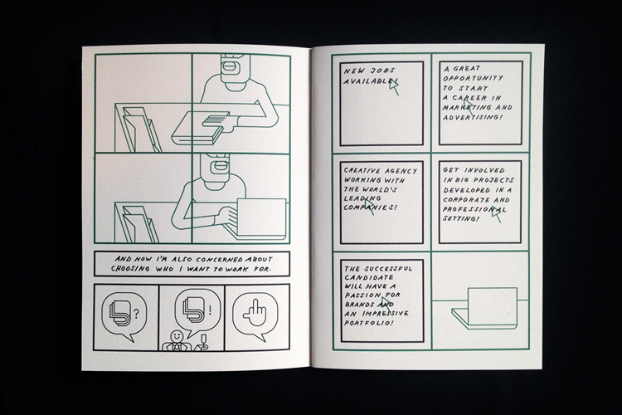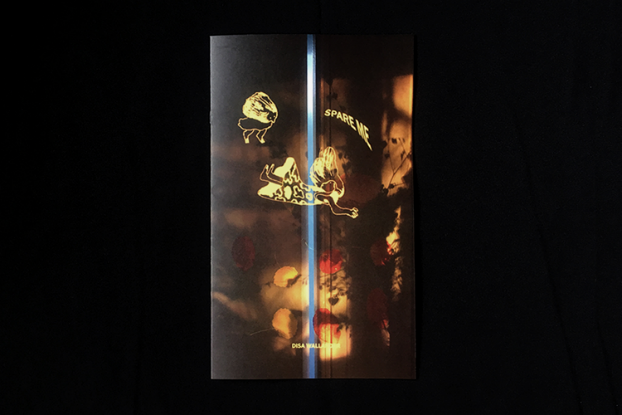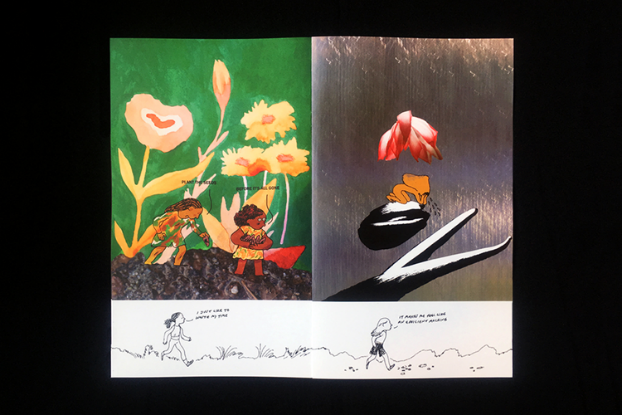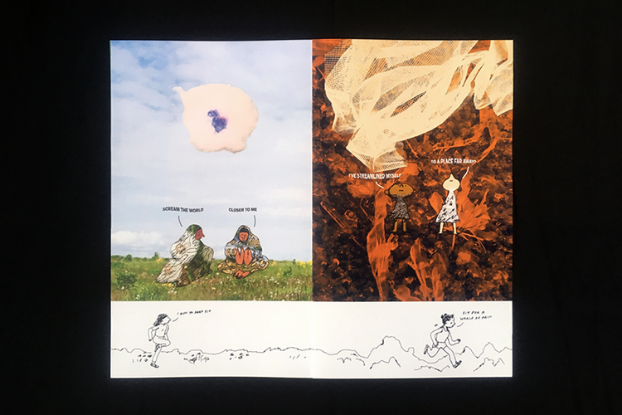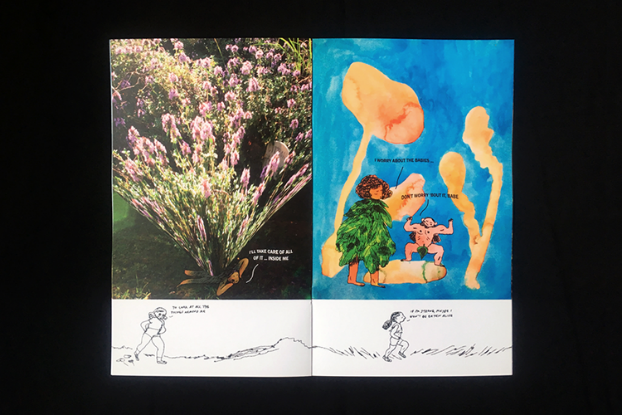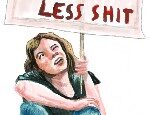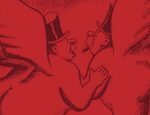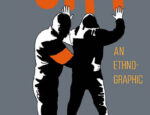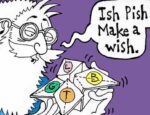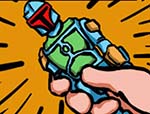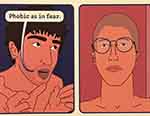Have you ever actually sat down and tried to read Das Kapital? Boy, that thing is a slog. Just real dry, full of numbers, just not fun like those socialist meme pages on Facebook at all. Marx lays out the finer points of how capitalism functions, really gets in the weeds of the means of production and market value of linen coats and such. It’s undoubtedly a foundational text. It’s just so long.
The text on the cover of João Sobral’s Money Worries #1 (originally published as part of a mini-comics residency, since reprinted by the Glasgow-based creator’s small press O Panda Gordo) explains the modern capitalist machine far more succinctly, after Homer Simpson: “Money is something you can exchange for the things you need or want. Like food, books or toys. To earn it, you have to find something to do (work). But it has to be something important enough so that it can be called a job.” And so on. Much easier to understand. And with pictures!
It all seems so simple, especially when illustrated with rounded lines and simple layouts that disguise the hidden depths of this devilish trap. Sobral documents day-to-day life trapped in this maze fraught with contradiction, anxiety and daily selling out of your principles. “I’ve been thinking about money everyday,” read the captions below the highly-abstracted figures going about their daily grind. “I fall asleep thinking about money…I sleep thinking about money…and I wake up thinking about money.”
There is even the perennial freelance artist’s dilemma of getting paid for work with “exposure,” illustrated succinctly with a three-panel exchange of word balloons: the first containing a wad of bills and a question mark, the second in response a line through the dollar bills, the third credited to the first speaker and containing a defiant middle finger. It’s not so easy to get over the way things are, though, as in the cartoon Sobral shows on the final page, musing “Don’t you think that a good way to fight poverty would be to fight wealth?,” his audience fleeing screaming “Help! A radical!”
It’s a mistake to think getting out of the city will free you from this maze. In fact it’s a mistake made by a great deal of the modern prose nature writing you see on table displays in Waterstones, where men with Patagonia jackets and lofty ideas about the “anthropocene” anthromorphise the countryside, imbuing the natural world with human-centric symbolism. Mother Nature is not a metaphor for our struggle. It gets on just fine — in fact, it gets on much better — without our intervention. Still, it’s hard not to use “getting away from it all” as a method of therapy, an alternative to hectic professional city life.
Disa Wallander’s Spare Me (also from O Panda Gordo, edited by Sobral) has a running commentary at the bottom of the page similar to Money Worries, this time in the form of figures jogging past, providing a literal running commentary on the images above them. The bulk of the pages are those images, illustrations laid over or incorporated into computer-manipulated photos and watercolours of nature scenes.
Fields and blue skies which are populated by cloaked individuals, two childlike beings populate what looks like a thicket covered in autumn leaves, and a posy of flowers is free-transformed to look as if it’s being funneled into a prone figure’s spine whilst they state passively “I’ll take care of it all inside of me,” their placid face not looking like they take their “duty” of protecting the natural world all that seriously.
If there’s a feeling of peace at becoming “one with nature” in these main images, the bare ink sketches passing by underneath undercut with hilariously bleak set-up/punchlines in the form of testaments about why they run: “I run to keep fit”/“Fit for a world of pain,” and “Mostly to keep the demons at bay”/“If I run fast enough, the emails will never catch up.” Both the characters in the margins and the main images are only holidaying in these serene images, and in the symbolism they imbue them with.
You can run from anxieties of the rat race, but you can’t hide. “It’s good to go outside, right?” asks the jogger on the final page, gazing up at an illustration of two solarised celestials. “I feel sad that the world is dying,” says one. Even freed from the office, screens and meeting reminders, we’re still struck with reminders of the capitalist treadmill trundling onwards. As Jedediah Purdy (heck of a name) recently wrote for n+1, “We are too insurmountably human to know how cultural, how intentional, how meaningful, the nonhuman world might be.” Sobral and Wallander both seem keenly aware, if unable to do anything to join that non-human world.
João Sobral, Disa Wallander, (W/A) • O Panda Gordo, £3.50 (Money Worries) £6.00 (Spare Me)
(You can buy O Panda Gordo comics here and follow them on Twitter here.)





